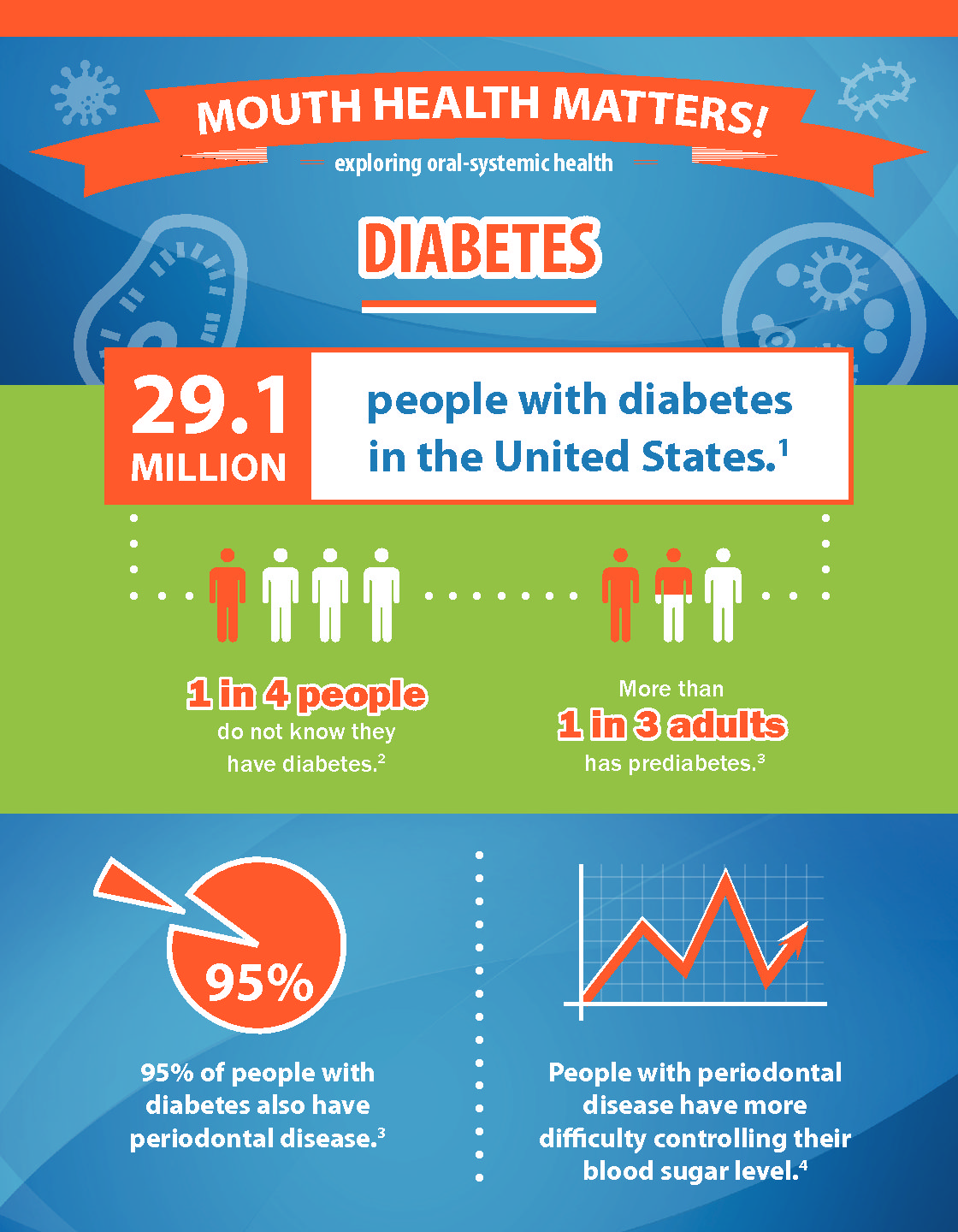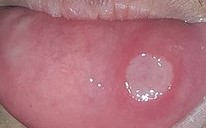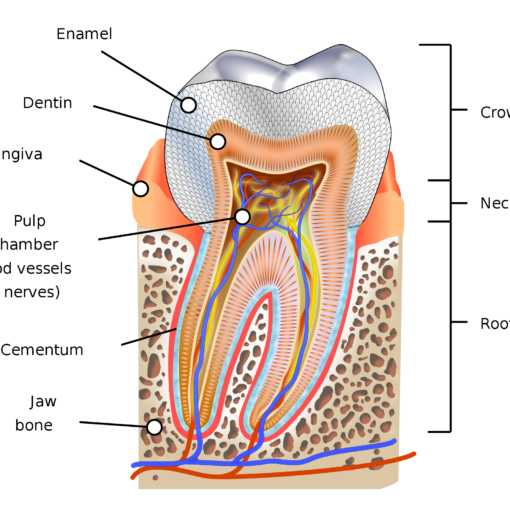DIABETES AND PERIODONTAL DISEASE
Uncontrolled diabetes =Uncontrolled periodontal disease
It’s that simple. People with diabetes are more likely to have periodontal disease opposed to people who don’t have diabetes. This could be due to the fact that diabetics are more susceptible to infections. Periodontal disease is considered a complication for diabetes, making uncontrolled diabetes a higher risk to gum infection.
The reason this is important is because periodontal disease whether it being active or from previous infection leads to tissue and bone loss. Tissue and bone are what holds the teeth in place. So the less bone and tissue there is, equals less support around the teeth, which increases more tooth loss.
The vicious cycle of gum disease and diabetes lies in the infection and blood sugar regulation. If there’s an infection in the mouth aka periodontal disease including gingivitis, it raises the blood sugars. If the blood sugars are increased the gum infection is increased. The higher the blood sugars, the more the infection and vice versa, the more the infection the higher the blood sugars are as well. High blood sugar and constant infection lowers the immune system. When the body is constantly fighting something or trying to repair itself, the immune system is compromised. It’s the same with the rest of the body with healing sores and infections. The mouth is no different.
A complication of diabetes is the thickening of the blood vessels which slows the flow of nutrients and the removal of wastes. This can depress the resistance of gum and bone tissue to infection.
- Periodontal treatment helps regulate blood sugars
- 29.1 million in the United States has diabetes
- 1 in 4 people don’t know they have diabetes
- 1 in 3 adults or 86 million has pre-diabetes
- 95% of people with diabetes also have periodontal disease
- Diabetics with periodontal disease have more difficulty controlling their blood sugar
- 1 in 5 or 20% healthcare dollars is spent caring for people with diabetes, so treating gum disease may lower annual medical costs
- 7th leading cause of death is diabetes listed as an underlying cause
Homecare must be GREAT not just good. Any kind of plaque can exacerbate gum infection. Remember if diabetes is involved, that’s a systemic condition that’s more challenging to control, then adding a topical issue (plaque) to it, makes the diabetes and oral health even more challenging to control.
Think of it this way, the amount of tissue in the mouth is the same size of the amount of skin in the palm. If the palm were to have a huge open wound, with bleeding, it would get attention. In comparison of periodontal disease in your mouth, with bleeding and infection although it can’t be seen as well, it still makes it a concern and risk to the health. If a diabetic notices bleeding with brushing, flossing or eating, it means something is not in sync.
Periodontal treatment with regular maintenance and good homecare can improve glycemic control in patients with diabetes. Some insurances will pay more often for cleanings if diabetes is in play. It’s definitely worth checking the insurance policy. Even one more cleaning a year can make a huge difference.





